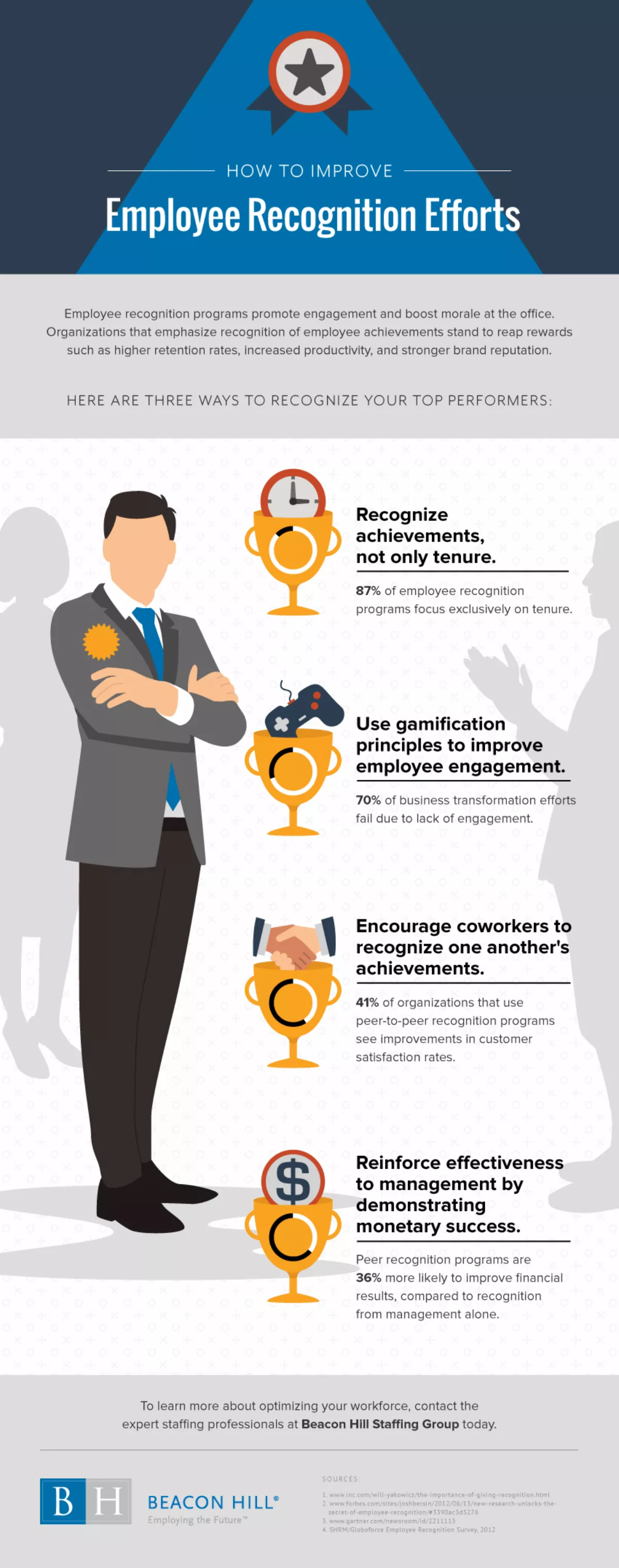How to Improve Employee Recognition Efforts
It takes more than a salary to optimally motivate employees. To improve retention metrics and generate additional opportunities for productivity, employers need to recognize the achievements of their dedicated workers.

Recognition is an investment worth making
Recognition programs not only incentivize employees to work harder, but also to produce work that is high quality. However, not all recognition programs will lead to the same results. For instance, programs that focus exclusively on tenure aren't likely to motivate new employees.
Rewarding workers for their years of loyalty and dedication is certainly important, but it should not be the only attribute for which you recognize employees. Noting specific achievements and improvements is much more likely to reinforce positive behaviors. In short, organizational leaders should reward their employees for something other than merely showing up. Rewarding specific achievements will show that leadership is paying attention to the things that actually matter to employees.
Recognition doesn't always need to be top-down
Many recognition programs focus exclusively on top-down rewards: A manager notices an achievement and rewards the responsible team members. Though effective, this paradigm should not be the only way employee achievement is recognized. Managers won't always see every achievement.
Peer-to-peer employee recognition programs allow coworkers to celebrate one another. Often, this type of recognition feels more sincere, because co-workers have a better understanding of day-to-day challenges.
To create more opportunities for employee success, recognition programs should address specific achievements, encourage peer-to-peer contributions and reinforce positive behaviors. A well-managed program can boost customer satisfaction rates and improve financial results.
 Back to Top
Back to Top

